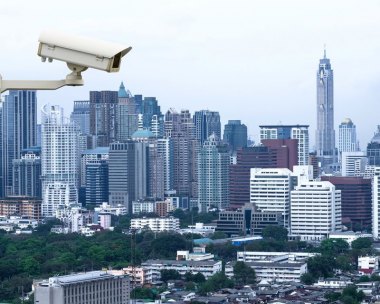Fire robocop? Cameras infuriate motorists

The cameras rake in millions of dollars in fines for municipalities across the nation. Indeed, as of December 2013, 502 communities across the country had red light cameras and 140 communities had speed-camera programs, according to the Insurance Institute for Highway Safety. But many motorists feel unjustly targeted. And as it turns out, they may be right.
In Ohio, a motorist has filed suit contending that after receiving a traffic-cam violation he was denied due process. In Chicago, a news report found more than half of all tickets are issued to South Side residents.
A flawed process results in motorists paying fines for infractions they did not commit, according to a Sept. 8 report on traffic cameras in the District of Columbia. The inspector general's report, “Parking and Automated Traffic Enforcement Tickets,” took city officials to task over misuse of the cameras.
Traffic cameras are intended to slow motorists down and save lives. But tickets can also be a significant source of revenue in many cities. The District took in approximately $83 million in citation revenue 2013, according to the inspector general's report.
The report states that a senior District official told investigators, “One of the beauties of parking, it’s like the [Internal Revenue Service]. If you get a parking ticket, you are guilty until you have proven yourself innocent.... That has worked well for us."
The inspector general added that this “twist on accepted jurisprudence” was also seen in other findings in the report. For example:
- The District’s police department issued tickets even when it could not conclusively identify the speeding vehicle.
- The department issued tickets when “vehicle information gleaned from violation images does not match registration information linked to the license plate.”
- The District didn’t have statutory restrictions on the cameras similar to those of other jurisdictions. For example, in Maryland, the report noted, speed-camera use was limited to school and roadwork zones. There are no such restrictions in the District.
- The inspector general learned that when more than one vehicle appears in a violation image, police reviewers must decide which vehicle was speeding and “whether there is sufficient distance between the violating vehicle and others in the images to justify issuance of a ticket,” the report said. The metropolitan police department now has technology that “it says is able to positively identify the violating vehicle." But the reality, the report said, is that "the District often issues speeding tickets without conclusive identification of the violating vehicle.”
Do safety cameras help your community -- or are they used unfairly? Like us on Facebook and tell us.
Related:
Robots take strides into workplace
Could robots leave us jobless by 2025?
Recommended:
Insurance Institute for Highway Safety: Communities using cameras

